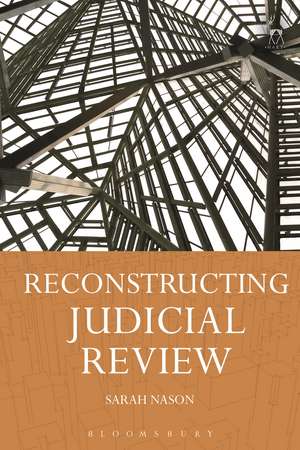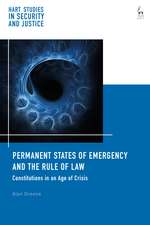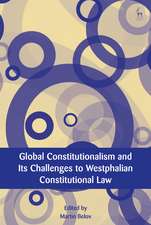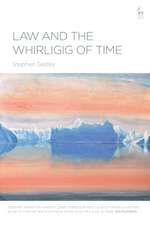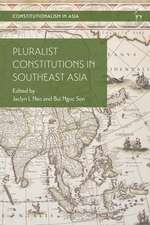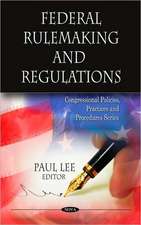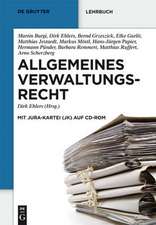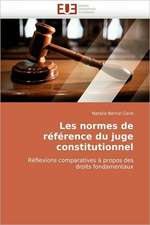Reconstructing Judicial Review
Autor Dr Sarah Nasonen Limba Engleză Paperback – 17 apr 2019
| Toate formatele și edițiile | Preț | Express |
|---|---|---|
| Paperback (1) | 237.84 lei 6-8 săpt. | |
| Bloomsbury Publishing – 17 apr 2019 | 237.84 lei 6-8 săpt. | |
| Hardback (1) | 539.99 lei 6-8 săpt. | |
| Bloomsbury Publishing – 30 noi 2016 | 539.99 lei 6-8 săpt. |
Preț: 237.84 lei
Preț vechi: 305.78 lei
-22% Nou
Puncte Express: 357
Preț estimativ în valută:
45.52€ • 49.42$ • 38.23£
45.52€ • 49.42$ • 38.23£
Carte tipărită la comandă
Livrare economică 22 aprilie-06 mai
Preluare comenzi: 021 569.72.76
Specificații
ISBN-13: 9781509928828
ISBN-10: 1509928820
Pagini: 256
Dimensiuni: 156 x 234 x 13 mm
Greutate: 0.37 kg
Editura: Bloomsbury Publishing
Colecția Hart Publishing
Locul publicării:London, United Kingdom
ISBN-10: 1509928820
Pagini: 256
Dimensiuni: 156 x 234 x 13 mm
Greutate: 0.37 kg
Editura: Bloomsbury Publishing
Colecția Hart Publishing
Locul publicării:London, United Kingdom
Caracteristici
Combines empirical, doctrinal and theoretical analysis to offer a comprehensive study of judicial review.
Notă biografică
Sarah Nason is Lecturer in Law at Bangor University.
Cuprins
1. Introduction: Reconstructing Judicial Review 2. The Dual Nature of Law and the Methodology of this Study: Constructive Interpretation 3. Judicial Review and Values 4. An Operative Interpretation of Judicial Review: Social Practice and the Administrative Court's Caseload 5. An Operative Interpretation of Judicial Review: Community Justice6. An Operative Taxonomy of Grounds of Review: Part One 7. An Operative Taxonomy of Grounds of Review: Part Two 8. A Target Interpretation of Judicial Review and Judicial Rationality 9. Judicial Review for the Advancement of Justice and Good Governance
Recenzii
Reconstructing Judicial Review makes a powerful argument for a constructive approach which synthesises empirical and conceptual analysis, laying moral values over social facts... this work succeeds in advancing a powerful holistic account of judicial review based on Dworkinian notions of constructivism and equal concern and respect.
The purpose of judicial review is the central concern of Sarah Nason's interesting study of judicial review in the United Kingdom ... all would surely admire her careful attention to the detail of theory and doctrine, as well as her carefully designed empirical methodology. These are drawn together in a cogent study that may provide a useful template for future such research throughout the common law world. More such studies of this breadth and quality can only be good.
The purpose of judicial review is the central concern of Sarah Nason's interesting study of judicial review in the United Kingdom ... all would surely admire her careful attention to the detail of theory and doctrine, as well as her carefully designed empirical methodology. These are drawn together in a cogent study that may provide a useful template for future such research throughout the common law world. More such studies of this breadth and quality can only be good.
